中考英语分类总复习课件-14动词与时态
图片预览

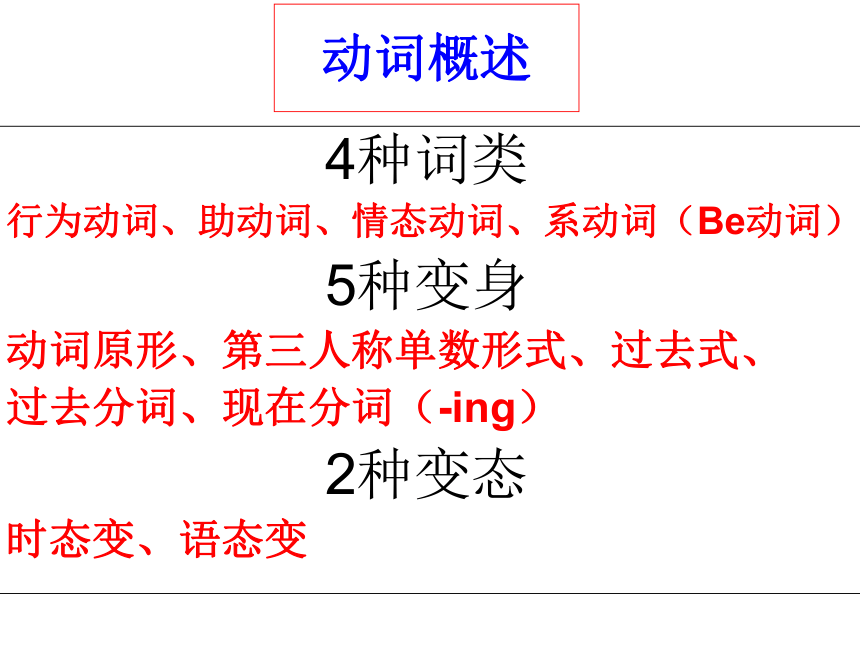
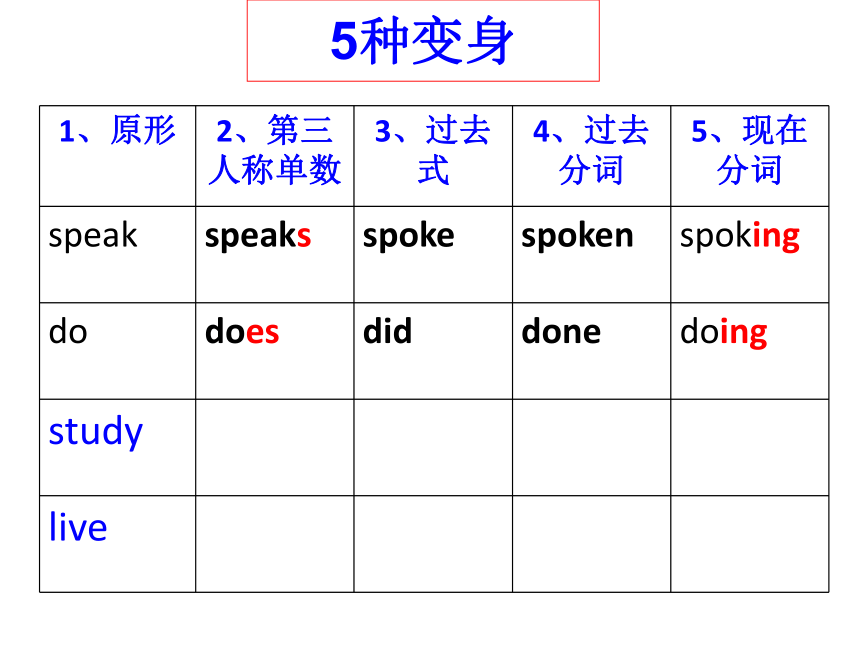
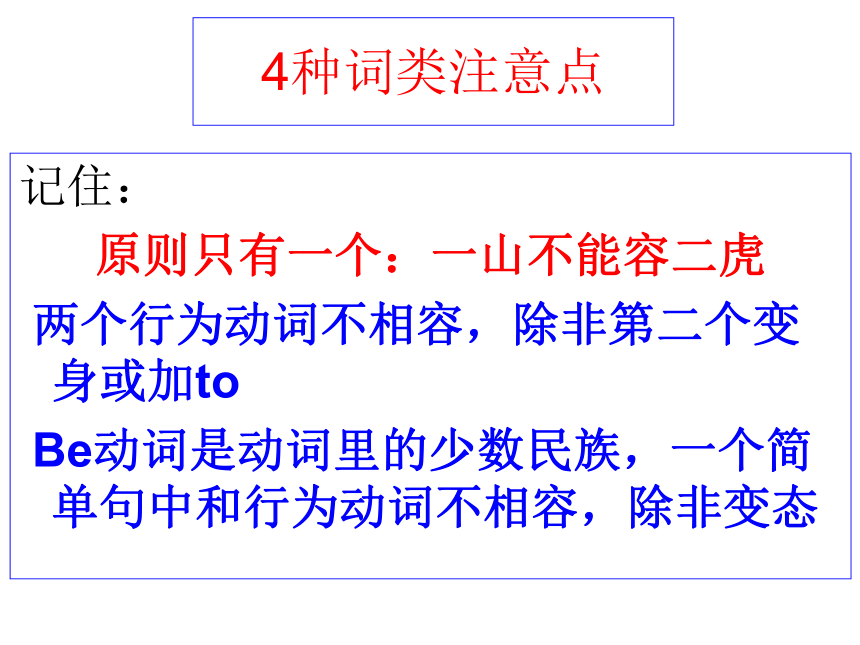
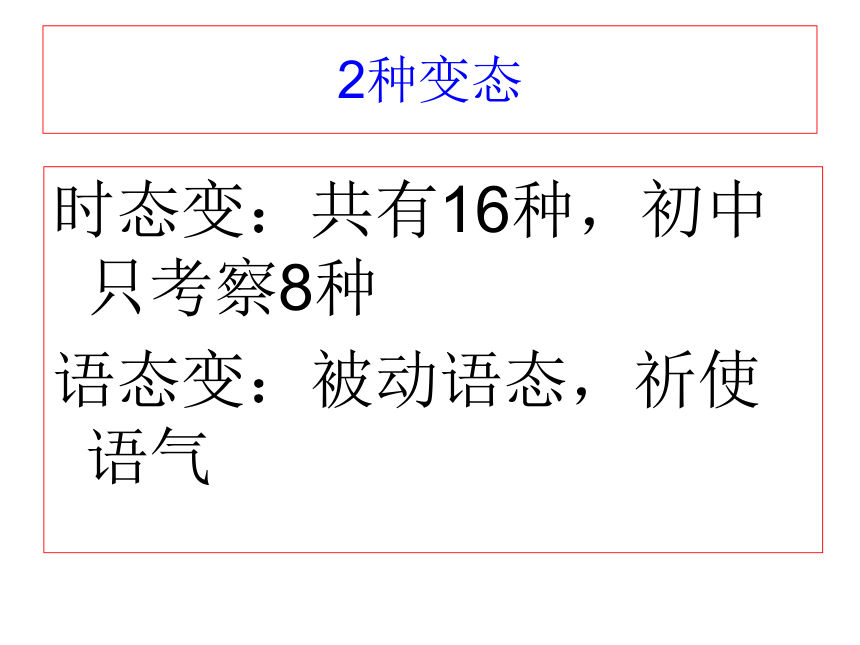
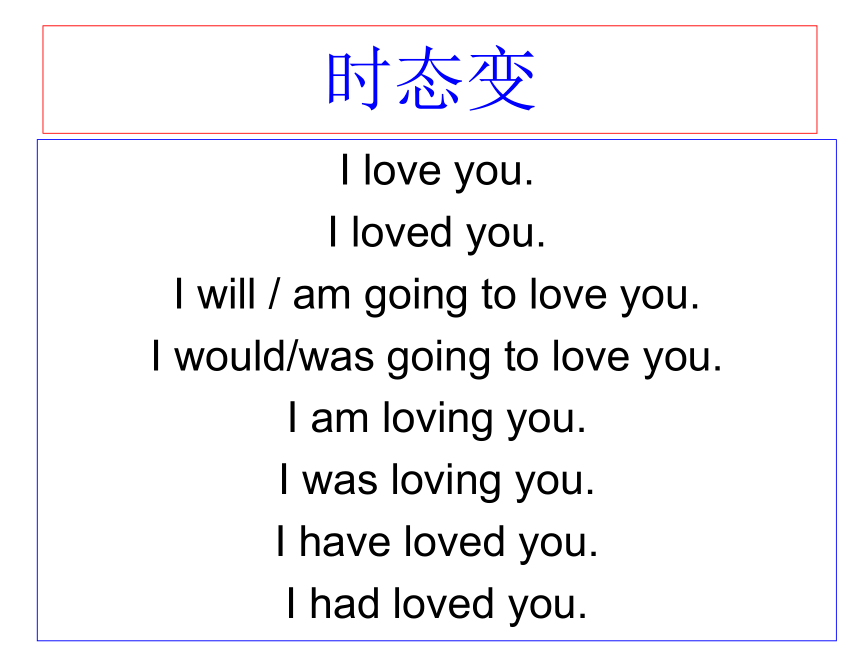

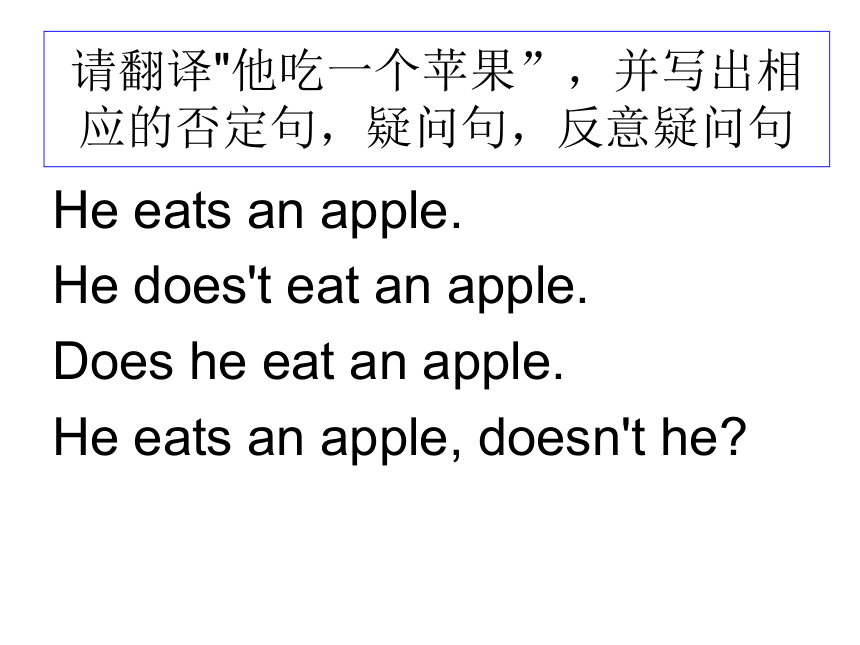
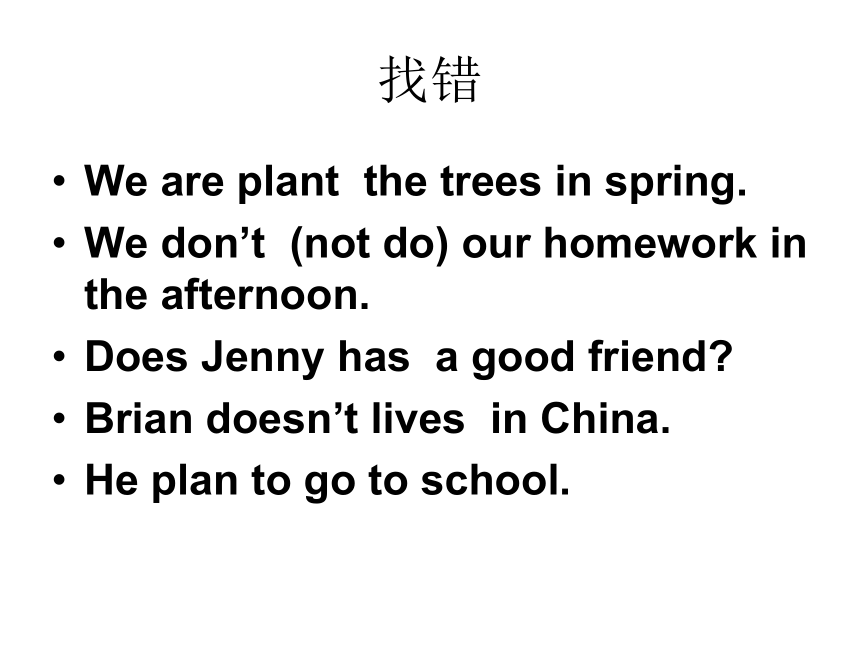
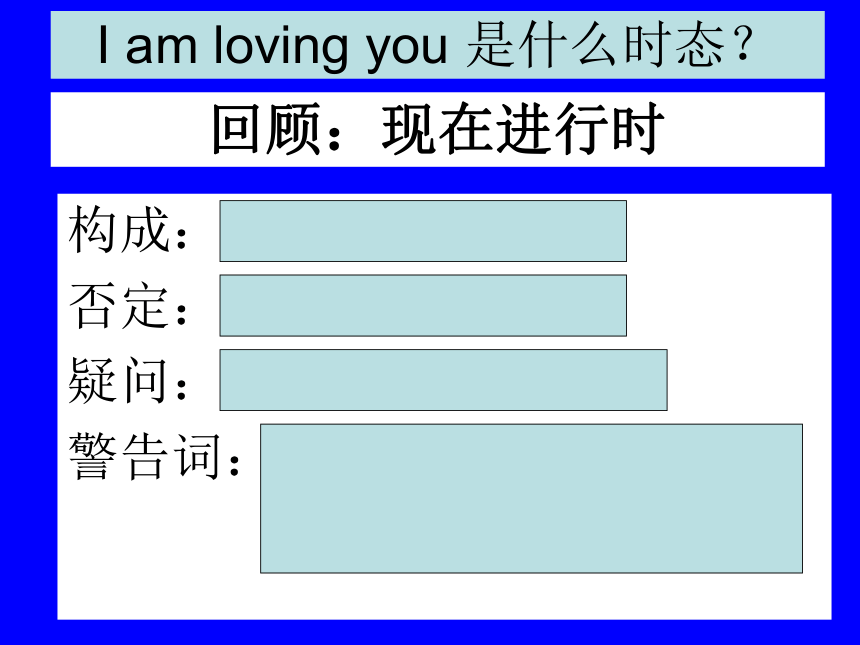
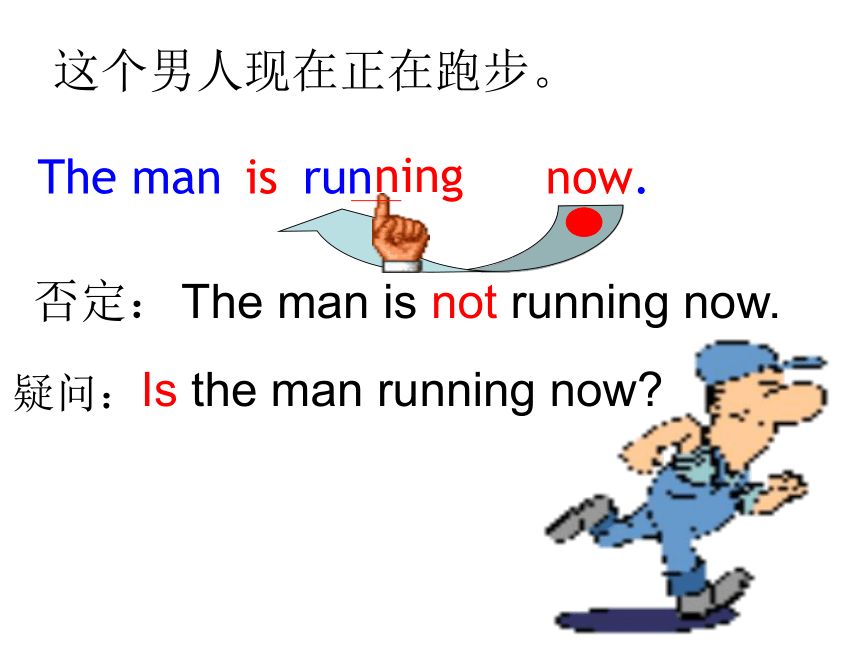
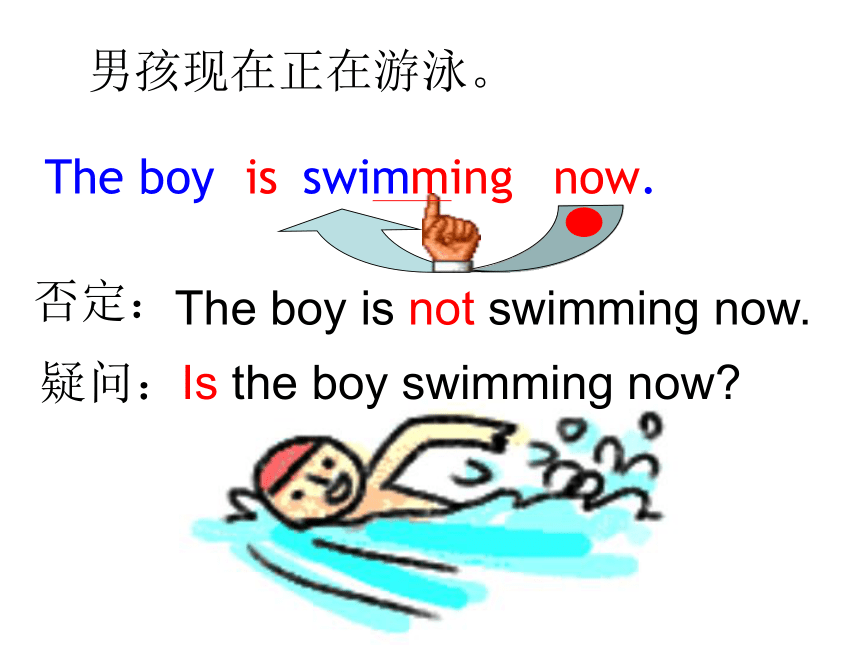
文档简介
(共43张PPT)
动词
什么被誉为英语界的奥特曼?
动词概述
4种词类
行为动词、助动词、情态动词、系动词(Be动词)
5种变身
动词原形、第三人称单数形式、过去式、
过去分词、现在分词(-ing)
2种变态
时态变、语态变
5种变身
1、原形 2、第三人称单数 3、过去式 4、过去分词 5、现在分词
speak speaks spoke spoken spoking
do does did done doing
study
live
4种词类注意点
记住:
原则只有一个:一山不能容二虎
两个行为动词不相容,除非第二个变身或加to
Be动词是动词里的少数民族,一个简单句中和行为动词不相容,除非变态
2种变态
时态变:共有16种,初中只考察8种
语态变:被动语态,祈使语气
时态变
I love you.
I loved you.
I will / am going to love you.
I would/was going to love you.
I am loving you.
I was loving you.
I have loved you.
I had loved you.
回顾:一般现在时
1. 构成:动词原形、三单形式+ s / es
2. 否定:+ don't / doesn't
3. 疑问:+ Do / Doesn't
4. 警告词:every day, always,
usually, often, sometimes
I love you 是什么时态?
请翻译"他吃一个苹果”,并写出相应的否定句,疑问句,反意疑问句
He eats an apple.
He does't eat an apple.
Does he eat an apple.
He eats an apple, doesn't he
找错
We are plant the trees in spring.
We don’t (not do) our homework in the afternoon.
Does Jenny has a good friend
Brian doesn’t lives in China.
He plan to go to school.
回顾:现在进行时
构成: be + 动词ing
否定:be动词后加not
疑问:be 动词提前到句首
警告词:listen、look、now,
at the moment....
I am loving you 是什么时态?
The man
run
is
ning
now.
这个男人现在正在跑步。
The man is not running now.
否定:
疑问:
Is the man running now
The boy
swim
is
ming
now.
男孩现在正在游泳。
否定:
The boy is not swimming now.
疑问:
Is the boy swimming now
1、构成是:动词变身
2、否定句:doesn't 变didn't
3、疑问句:does 变 did
警告词:yesterday、ago、just now
in 1992、 last week/month
I loved you 是什么时态?
回顾:一般过去时
构成过去时关键是动词变身
构成规则 原 形 过 去 式
一般在动词原形末尾 加-ed work
play worked
played
结尾是e的动词加-d hope
live hoped
lived
末尾只有一个辅音字 母的重读闭音节词,先 双写这个辅音字母,再 加-ed stop
trip stopped
tripped
结尾是“辅音字母+y”的动词,先变“y”为“ i”再加-ed study
worry studied
worried
规则动词过去式的构成
试试想想下列动词的过去式
look
pick
ask
knock
answer
push
finish
open
carry
hurry
cry
try
stop
live
go
have
get
make
went
had
got
made
So, 请再观察下列句子
他做作业。 He ______ homework.
他昨晚做作业。He_______ homework last night.
他不做作业。 He _____ _____ homework.
他昨晚不做作业。He _____ _____ homework.
你不做作业。 You_____ _____ homework.
你昨天不做作业。You _____ _____homework yesterday.
does
did
don't do
didn't do
doesn't do
didn't do
don't / doesn't
do / does
否定
否定
否定
did
didn't
1.I went to China last year.(一般疑问句)
__ you ___ to China last year
2.I went to Hainan on my holiday.
_____ ____ you ___ on your holiday
3.I went there by plane .
___ ___ you go there 划线提问
4.He went skiing .划线提问
_____ ___ he _____
Did
go
Where
did
go
How
did
What
did
do
PRACTISE
改写句子:
1、Lucy did her homework at home.(改否定句)
Lucy _______ _______ her homework at home.
2、He found some meat in the fridge.(变一般疑问句)
______ he _____ ______ meat in the fridge
3、She stayed there for a week.(对划线部分提问)
______ ______ _____ she _____ there
4、There was some orange in the cup.(变一般疑问句)
_____ there _____ orange in the cup
didn’t do
Did find any
How long did stay
Was any
Find the mistakes and correct them
1.I carryed an umbrella yesterday.
2.Does your uncle see a film last week?
3.They don’t climb the hill yesterday.
4.Kate didn’t played badminton yesterday morning.
5. We go to the museum last month.
×
carried
×
Did
×
×
didn’t
didn’t play
×
went
请同学们用三种时态来描述皮卡丘干什么?
现在时:Picaqiu drinks water.
进行时:Picaqiui is drinking water.
过去时:Picaqiu drank water.
如果就句子提问应该怎么怎么问?
现在时:What does Picaqiu do
进行时:What is Picaqiu doing
过去时:What did Picaqiu do
反过来,先问再答
. 现在时:What does rabbit do
Rabbit eats banana.
进行时:What is rabbit doing
Rabbit is eating banana.
过去时:What did rabbit do
Rabbit ate banana.
加码:改为一般疑问句应该怎么改
现在时:What does he do
He walks.
一般疑问句: Does he walk
回答:Yes, he does./ No,he doesn't.
进行时:What is he doing
He is walking.
一般疑问句:Is he walking
回答:Yes, he is./ No,he isn't.
过去时:What did he do
He walked.
I am loving you. 是什么时态?
I was loving you 呢?
现在进行时
现在进行时变过去进行时,只要Be动词变成过去式就可以了
过去进行时
1、构成是:will / be going to+原形
shall do(只用于第一人称)
2、否定句:won't / be 后加 not
3、疑问句:will /be 放句首,
警告词:in the future, next week...
I will/am going to love you 是什么时态?
回顾:一般将来时
I would / was going to.....
I will/am going to love you
一般将来时
过去将来时
中考真题及模拟
1、 I ________ to the bookshop as soon as school is over this afternoon.
A. will go B. have gone C. go D. went
2、——When _______________ for Hong Kong, do you know
——I’m not sure. When he __________, I’ll let you know.
A. he leaves ;leaves B. will he leave; will leave
C. he leaves; will leave D. will he leave;leaves
A
D
4、—Where will they go next Sunday
——They ___________ to the Great Wall.
A. will go B. go
C. has gone D. went
5、I _______the CDs to you if I have time tomorrow.
A. will return B. returned
C. have returned D. return
A
A
1、构成是:have/has +动词过去分词
2、否定句:have/has后加 not
3、疑问句:have/has放句首,
警告词: aloready, yet, for 2 years
never, ever,since
I have loved you.是什么时态?
回顾:现在完成时
I have been to TianJing.
写出该句的否定,疑问,肯定回答,否定回答
否定: I haven't been to.....
疑问: Have you been to....
肯定回答:Yes, I have.
否定回答:No, I haven't.
现在完成时的常考考点一
have been to VS have gone to
5.—Where is Mr. Zhao?
—He ____ to Mount Fangjing.He'll come back ________ a week.
A.has been;in B.has gone;after
C.has gone;in D.has been;after
C
现在完成时不能和瞬间动词连用
现在完成时的常考考点二
瞬间动词是什么
英语中表示动作的动词,按其动作过程的长短,可分为延续性和终止性动词。
延续性动词表示的动作是一种延续的动作,如:study, wait等。
瞬间动词 或称为非延续性动词 表示的动作不能延续,即动作发生后立即结束,产生其结果,有了某种结果之后动作就不能再继续下去,如:close, borrow, die 等
解决方案:偷梁换柱:在现在完成时中,把瞬间动词换成相同意思延续性动词
常见的瞬间动词可以换成延续性动词有哪些呢?
die --- be dead
leave--- be away
buy---- have
borrow--- keep
begin/start--- be on
marry---be married
..........
误:I have bought this computer for two years.
正:I have had this computer for two years.
我买这台电脑有两年了。
【例9】 —May I speak to Ann?
—Sorry,she isn't in.She _ _ France.
A.has gone to B.has been to
C.was going to D.goes to
点拨:由答句“她现在不在家。”可知“她已经去法国了”表明人还未回来。应用“has gone to”。
【例10】 He _ _ in this factory for 20 years already.
A.will work B.works
C.has worked D.is working
点拨:由“for 20 years already”可知应用现在完成时。
C
B
A
1.Beijing and Zhangjiakou ____ applying to host the 2022 Winter Olympic Games in 2013.
A.begin B.began
C.have begun D.had begun
2.—Do you know Diaoyu Island?
—Sure.It ____ China since ancient times.
A.belongs to B.belonged to
C.has belonged to D.is belonging to
B
C
3、—A new shop ___ for a week nearby.Let's have a look there.
—Good idea.But it doesn't ________ on Mondays.
A.opened;opened B.has been opened;open
C.has opened;opened D.has been open;open
_D
现在完成时
I have loved you
I had loved you.
过去完成时
动词
什么被誉为英语界的奥特曼?
动词概述
4种词类
行为动词、助动词、情态动词、系动词(Be动词)
5种变身
动词原形、第三人称单数形式、过去式、
过去分词、现在分词(-ing)
2种变态
时态变、语态变
5种变身
1、原形 2、第三人称单数 3、过去式 4、过去分词 5、现在分词
speak speaks spoke spoken spoking
do does did done doing
study
live
4种词类注意点
记住:
原则只有一个:一山不能容二虎
两个行为动词不相容,除非第二个变身或加to
Be动词是动词里的少数民族,一个简单句中和行为动词不相容,除非变态
2种变态
时态变:共有16种,初中只考察8种
语态变:被动语态,祈使语气
时态变
I love you.
I loved you.
I will / am going to love you.
I would/was going to love you.
I am loving you.
I was loving you.
I have loved you.
I had loved you.
回顾:一般现在时
1. 构成:动词原形、三单形式+ s / es
2. 否定:+ don't / doesn't
3. 疑问:+ Do / Doesn't
4. 警告词:every day, always,
usually, often, sometimes
I love you 是什么时态?
请翻译"他吃一个苹果”,并写出相应的否定句,疑问句,反意疑问句
He eats an apple.
He does't eat an apple.
Does he eat an apple.
He eats an apple, doesn't he
找错
We are plant the trees in spring.
We don’t (not do) our homework in the afternoon.
Does Jenny has a good friend
Brian doesn’t lives in China.
He plan to go to school.
回顾:现在进行时
构成: be + 动词ing
否定:be动词后加not
疑问:be 动词提前到句首
警告词:listen、look、now,
at the moment....
I am loving you 是什么时态?
The man
run
is
ning
now.
这个男人现在正在跑步。
The man is not running now.
否定:
疑问:
Is the man running now
The boy
swim
is
ming
now.
男孩现在正在游泳。
否定:
The boy is not swimming now.
疑问:
Is the boy swimming now
1、构成是:动词变身
2、否定句:doesn't 变didn't
3、疑问句:does 变 did
警告词:yesterday、ago、just now
in 1992、 last week/month
I loved you 是什么时态?
回顾:一般过去时
构成过去时关键是动词变身
构成规则 原 形 过 去 式
一般在动词原形末尾 加-ed work
play worked
played
结尾是e的动词加-d hope
live hoped
lived
末尾只有一个辅音字 母的重读闭音节词,先 双写这个辅音字母,再 加-ed stop
trip stopped
tripped
结尾是“辅音字母+y”的动词,先变“y”为“ i”再加-ed study
worry studied
worried
规则动词过去式的构成
试试想想下列动词的过去式
look
pick
ask
knock
answer
push
finish
open
carry
hurry
cry
try
stop
live
go
have
get
make
went
had
got
made
So, 请再观察下列句子
他做作业。 He ______ homework.
他昨晚做作业。He_______ homework last night.
他不做作业。 He _____ _____ homework.
他昨晚不做作业。He _____ _____ homework.
你不做作业。 You_____ _____ homework.
你昨天不做作业。You _____ _____homework yesterday.
does
did
don't do
didn't do
doesn't do
didn't do
don't / doesn't
do / does
否定
否定
否定
did
didn't
1.I went to China last year.(一般疑问句)
__ you ___ to China last year
2.I went to Hainan on my holiday.
_____ ____ you ___ on your holiday
3.I went there by plane .
___ ___ you go there 划线提问
4.He went skiing .划线提问
_____ ___ he _____
Did
go
Where
did
go
How
did
What
did
do
PRACTISE
改写句子:
1、Lucy did her homework at home.(改否定句)
Lucy _______ _______ her homework at home.
2、He found some meat in the fridge.(变一般疑问句)
______ he _____ ______ meat in the fridge
3、She stayed there for a week.(对划线部分提问)
______ ______ _____ she _____ there
4、There was some orange in the cup.(变一般疑问句)
_____ there _____ orange in the cup
didn’t do
Did find any
How long did stay
Was any
Find the mistakes and correct them
1.I carryed an umbrella yesterday.
2.Does your uncle see a film last week?
3.They don’t climb the hill yesterday.
4.Kate didn’t played badminton yesterday morning.
5. We go to the museum last month.
×
carried
×
Did
×
×
didn’t
didn’t play
×
went
请同学们用三种时态来描述皮卡丘干什么?
现在时:Picaqiu drinks water.
进行时:Picaqiui is drinking water.
过去时:Picaqiu drank water.
如果就句子提问应该怎么怎么问?
现在时:What does Picaqiu do
进行时:What is Picaqiu doing
过去时:What did Picaqiu do
反过来,先问再答
. 现在时:What does rabbit do
Rabbit eats banana.
进行时:What is rabbit doing
Rabbit is eating banana.
过去时:What did rabbit do
Rabbit ate banana.
加码:改为一般疑问句应该怎么改
现在时:What does he do
He walks.
一般疑问句: Does he walk
回答:Yes, he does./ No,he doesn't.
进行时:What is he doing
He is walking.
一般疑问句:Is he walking
回答:Yes, he is./ No,he isn't.
过去时:What did he do
He walked.
I am loving you. 是什么时态?
I was loving you 呢?
现在进行时
现在进行时变过去进行时,只要Be动词变成过去式就可以了
过去进行时
1、构成是:will / be going to+原形
shall do(只用于第一人称)
2、否定句:won't / be 后加 not
3、疑问句:will /be 放句首,
警告词:in the future, next week...
I will/am going to love you 是什么时态?
回顾:一般将来时
I would / was going to.....
I will/am going to love you
一般将来时
过去将来时
中考真题及模拟
1、 I ________ to the bookshop as soon as school is over this afternoon.
A. will go B. have gone C. go D. went
2、——When _______________ for Hong Kong, do you know
——I’m not sure. When he __________, I’ll let you know.
A. he leaves ;leaves B. will he leave; will leave
C. he leaves; will leave D. will he leave;leaves
A
D
4、—Where will they go next Sunday
——They ___________ to the Great Wall.
A. will go B. go
C. has gone D. went
5、I _______the CDs to you if I have time tomorrow.
A. will return B. returned
C. have returned D. return
A
A
1、构成是:have/has +动词过去分词
2、否定句:have/has后加 not
3、疑问句:have/has放句首,
警告词: aloready, yet, for 2 years
never, ever,since
I have loved you.是什么时态?
回顾:现在完成时
I have been to TianJing.
写出该句的否定,疑问,肯定回答,否定回答
否定: I haven't been to.....
疑问: Have you been to....
肯定回答:Yes, I have.
否定回答:No, I haven't.
现在完成时的常考考点一
have been to VS have gone to
5.—Where is Mr. Zhao?
—He ____ to Mount Fangjing.He'll come back ________ a week.
A.has been;in B.has gone;after
C.has gone;in D.has been;after
C
现在完成时不能和瞬间动词连用
现在完成时的常考考点二
瞬间动词是什么
英语中表示动作的动词,按其动作过程的长短,可分为延续性和终止性动词。
延续性动词表示的动作是一种延续的动作,如:study, wait等。
瞬间动词 或称为非延续性动词 表示的动作不能延续,即动作发生后立即结束,产生其结果,有了某种结果之后动作就不能再继续下去,如:close, borrow, die 等
解决方案:偷梁换柱:在现在完成时中,把瞬间动词换成相同意思延续性动词
常见的瞬间动词可以换成延续性动词有哪些呢?
die --- be dead
leave--- be away
buy---- have
borrow--- keep
begin/start--- be on
marry---be married
..........
误:I have bought this computer for two years.
正:I have had this computer for two years.
我买这台电脑有两年了。
【例9】 —May I speak to Ann?
—Sorry,she isn't in.She _ _ France.
A.has gone to B.has been to
C.was going to D.goes to
点拨:由答句“她现在不在家。”可知“她已经去法国了”表明人还未回来。应用“has gone to”。
【例10】 He _ _ in this factory for 20 years already.
A.will work B.works
C.has worked D.is working
点拨:由“for 20 years already”可知应用现在完成时。
C
B
A
1.Beijing and Zhangjiakou ____ applying to host the 2022 Winter Olympic Games in 2013.
A.begin B.began
C.have begun D.had begun
2.—Do you know Diaoyu Island?
—Sure.It ____ China since ancient times.
A.belongs to B.belonged to
C.has belonged to D.is belonging to
B
C
3、—A new shop ___ for a week nearby.Let's have a look there.
—Good idea.But it doesn't ________ on Mondays.
A.opened;opened B.has been opened;open
C.has opened;opened D.has been open;open
_D
现在完成时
I have loved you
I had loved you.
过去完成时
同课章节目录
- 词法
- 名词
- 动词和动词短语
- 动词语态
- 动词时态
- 助动词和情态动词
- 非谓语动词
- 冠词
- 代词
- 数词和量词
- 形容词副词及其比较等级
- 介词和介词短语
- 连词和感叹词
- 构词法
- 相似、相近词比较
- 句法
- 陈述句
- 一般疑问句和否定疑问句
- 特殊疑问句及选择疑问句
- 反意疑问句
- 存在句(There be句型)
- 宾语从句
- 定语从句
- 状语从句
- 主谓一致问题
- 简单句
- 并列句
- 复合句
- 主谓一致
- 主、表语从句
- 名词性从句
- 直接引语和间接引语
- 虚拟语气
- 感叹句
- 强调句
- 倒装句
- 祈使句
- 句子的成分
- 句子的分类
- 题型专区
- 单项选择部分
- 易错题
- 完形填空
- 阅读理解
- 词汇练习
- 听说训练
- 句型转换
- 补全对话
- 短文改错
- 翻译
- 书面表达
- 任务型阅读
- 语法填空
- 其他资料
